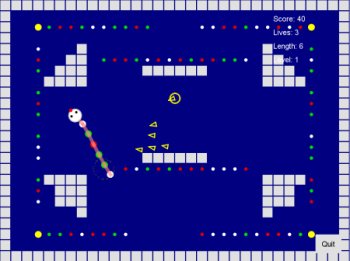Just landed on my desk, a great new video game anthology edited by Barry Atkins and Tanya Krzywinska: Videogame, Player, Text.
My piece is Without a Goal: On Open and Expressive Games.
Official homepage here.

Videogame, player, text
Edited by Barry Atkins & Tanya Krzywinska
Videogame, player, text examines both the playing and playful subject through a series of analytical essays focused on particular videogames and playing experiences. With essays from a range of internationally renowned game scholars, the major aim of this collection is to show how it is that videogames communicate their meanings and provide their pleasures. Each essay focuses on specific examples of gameplay dynamics to tease out the specificities of videogames as a new form of interaction between text and digital technology for the purposes of entertainment.That modes of engagement with the videogame text are many and varied, and construct the playing subject in different ways, provides the central theme of the collection. Online play, clan membership, competitive or co-operative play, player modification of game texts, and the solo play of a single player are each addressed through individual analyses of the gameplay experiences produced by, for example, The Sims, Grand Theft Auto, Prince of Persia, Doom, Quake, World of Warcraft, Street Fighter and Civilisation.
Contents
Introduction: Videogame, player, text – Barry Atkins and Tanya Krzywinska
1. Beyond Ludus: narrative, videogames and the split condition of digital textuality – Marie-Laure Ryan
2. All too urban: to live and die in SimCity – Matteo Bittanti
3. Play, modality and claims of realism in Full Spectrum Warrior – Geoff King
4. Why am I in Vietnam? – The history of a video game – Jon Dovey
5. ‘It’s Not Easy Being Green’: real-time game performance in Warcraft – Henry Lowood
6. Being a determined agent in (the) World of Warcraft: text/play/identity – Tanya Krzywinska
7. Female Quake players and the politics of identity – Helen W. Kennedy
8. Of eye candy and id: the terrors and pleasures of Doom 3 – Bob Rehak
9. Second Life: the game of virtual life – Alison McMahan
10. Playing to solve Savoir-Faire – Nick Montfort
11. Without a goal – on open and expressive games – Jesper Juul
12. Pleasure, spectacle and reward in Capcom’s Street Fighter series – David Surman
13. The trouble with Civilization – Diane Carr
14. Killing time: time past, time present and time future in Prince of Persia: The Sands of Time – Barry Atkins






